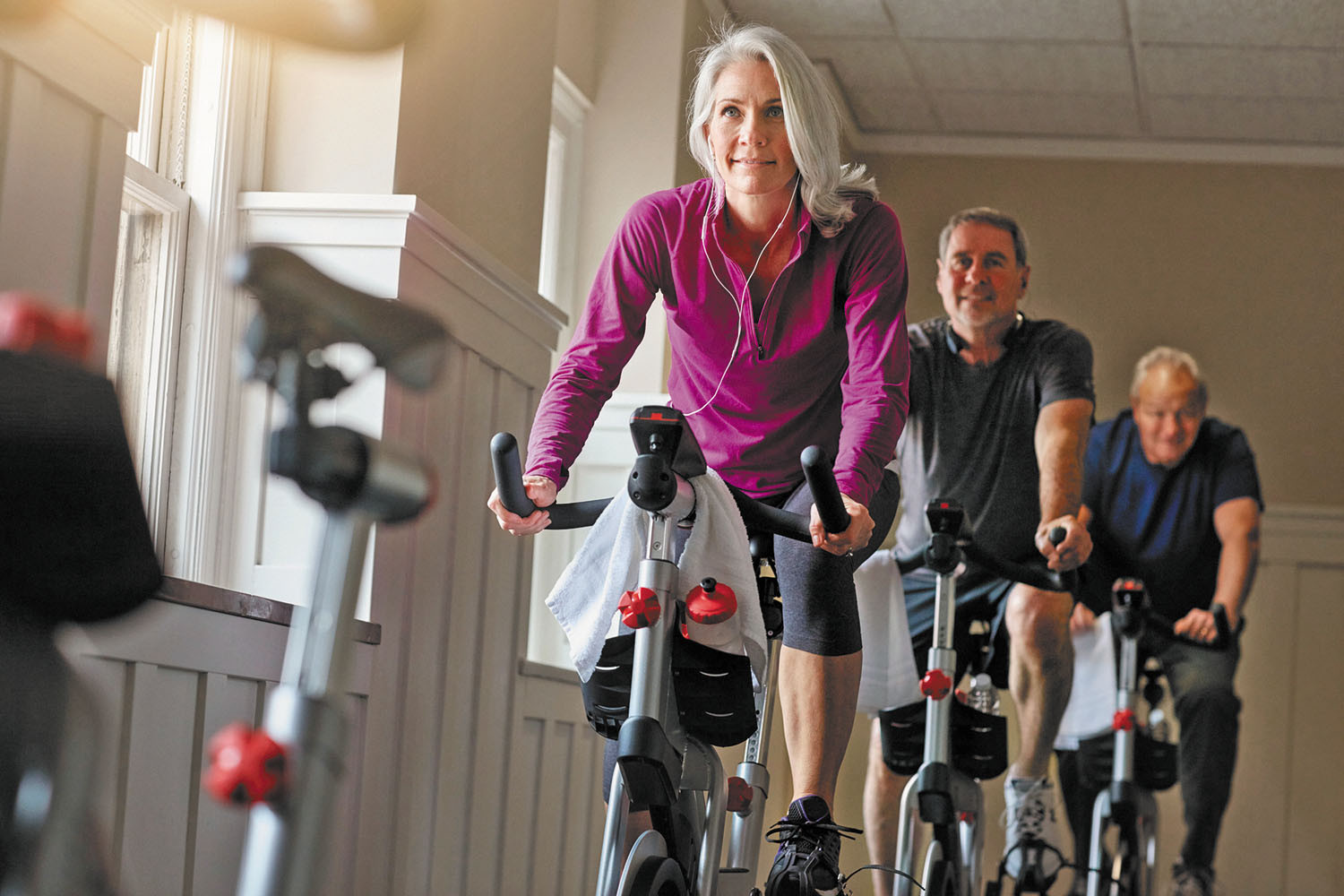
5 timeless habits for better health

What are the symptoms of prostate cancer?

Is your breakfast cereal healthy?

When pain signals an emergency: Symptoms you should never ignore

Does exercise give you energy?

Acupuncture for pain relief: How it works and what to expect

How to avoid jet lag: Tips for staying alert when you travel

Biofeedback therapy: How it works and how it can help relieve pain

Best vitamins and minerals for energy

Should you take probiotics with antibiotics?
Staying Healthy Archive
Articles
Half sun salutation
"Half sun salutation" is among the Basic Practice exercises described in "Intermediate Yoga," a special health report from Harvard Medical School. To learn additional intermediate yoga exercises, visit: www.health.harvard.edu/iy
Sun breath
Among the Flexibility Practice exercises in "Intermediate Yoga," a special health report from Harvard Medical School, is sun breath. The Flexibility Practice routine will help you gain more supple muscles and greater range of motion through various joints. To learn additional intermediate yoga exercises, visit: www.health.harvard.edu/iy
Bellows breath
"Intermediate Yoga," a special health report from Harvard Medical School, includes a Strengthening Practice routine with multiple exercises that help develop both mental and physical strength. Among them is "bellows breath." To learn additional intermediate yoga exercises, visit: www.health.harvard.edu/iy
Breath of joy
The Energizing Practice routine described in "Intermediate Yoga"—a Harvard Medical School special report—involves vigorous breathing to bring more oxygen to your body and brain. The result: physical and mental energy. Breath of joy is among the featured exercises. To learn additional intermediate yoga exercises, visit: www.health.harvard.edu/iy
Lion's breath
"Lion's breath," because of its starting position, is also called "five-pointed star into goddess with lion's breath." It's among the Energizing Practice routines in "Intermediate Yoga," a special health report from Harvard Medical School. To learn additional intermediate yoga exercises, visit: www.health.harvard.edu/iy
Ujjayi breath
This example of a Calming Practice yoga exercise can be done any time of day. If you're anxious or worked up over a stressful situation, the ujjayi breath exercise can center and relax you. It's among dozens of exercises featured in "Intermediate Yoga," a special health report from Harvard Health Publishing. To learn additional intermediate yoga exercises, visit: www.health.harvard.edu/iy
Simple math equals easy weight loss
The pleasure of eating a candy bar lasts but a few minutes. Burning off the calories it delivers can take nearly an hour. So this is definitely not a simple way to lose weight!
To lose one pound by exercising, you need to burn approximately 3,500 calories. It can take days of moderate exercise to do this. A better strategy for weight loss involves a two-pronged approach: exercising and cutting calories.
Grapefruit and medication: A cautionary note
Grapefruit can mean danger when combined with some popular drugs used for high blood pressure, high cholesterol and depression
Grapefruit and grapefruit juice are healthful, providing enough vitamin C, potassium, dietary fiber, and other nutrients to earn the American Heart Association's "heart-check" mark. That's the good news. The bad news is that grapefruit juice can interact with dozens of medications, sometimes dangerously.
Doctors are not sure which of the hundreds of chemicals in grapefruit are responsible. The leading candidate is furanocoumarin. It is also found in Seville (sour) oranges and tangelos; although these fruits have not been studied in detail, the guidelines for grapefruit should apply to them as well.
Staving off dementia when you have mild cognitive impairment
The shift from this condition to dementia is not necessarily inevitable.
Image: © gradyreese/Getty Images
Will I get dementia? That common question takes on urgency if you have mild cognitive impairment (MCI), a slight but noticeable change in memory and thinking skills. But the progression from MCI to dementia is not automatic. In fact, MCI is not always permanent. "It depends on the underlying cause," says Dr. Joel Salinas, a neurologist at Harvard-affiliated Massachusetts General Hospital.
What are the causes of MCI?
MCI is not dementia (see "What is dementia?"), but it's not normal thinking, either. It often stems from disease or treatments for disease, including
Small tricks to help you shed pounds and keep them off
Weight loss can be challenging, but there are some strategies for success.
Image: © Wand_Prapan/Getty Images
If you're struggling to lose weight, you probably feel like the odds are stacked against you. You're not necessarily wrong.
"There is so much great-tasting food, and it's abundant and in your face all the time. To me it's kind of a miracle that people aren't even heavier than they are," says Dr. Meir Stampfer, a professor of epidemiology and nutrition at the Harvard T.H. Chan School of Public Health. In addition to an abundance of food, most people today also have a far more sedentary lifestyle than past generations. "Even active people who exercise a lot aren't expending the calories their ancestors did," says Dr. Stampfer.

5 timeless habits for better health

What are the symptoms of prostate cancer?

Is your breakfast cereal healthy?

When pain signals an emergency: Symptoms you should never ignore

Does exercise give you energy?

Acupuncture for pain relief: How it works and what to expect

How to avoid jet lag: Tips for staying alert when you travel

Biofeedback therapy: How it works and how it can help relieve pain

Best vitamins and minerals for energy

Should you take probiotics with antibiotics?
Free Healthbeat Signup
Get the latest in health news delivered to your inbox!
Sign Up





